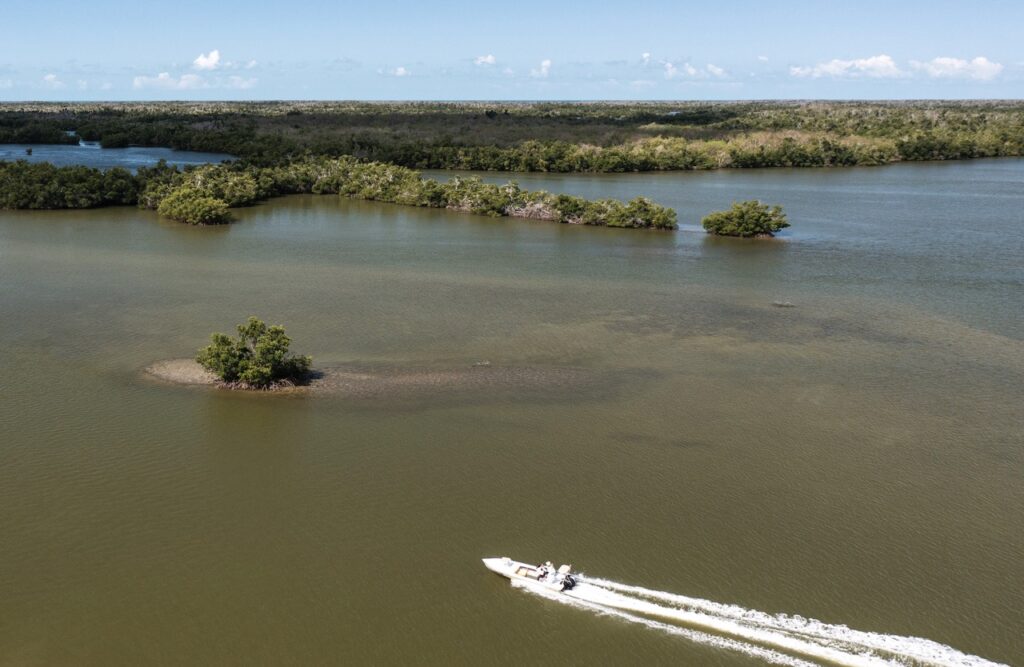In June, Governor Ron DeSantis signed the 2024-25 budget set forth by our legislators to continue to prioritize our natural resources. Bonefish & Tarpon Trust supported robust funding and multiple bills during Florida’s 2024 legislative session to improve water quality and fish habitat along the state’s coasts and estuaries.
The state’s budget provides significant funding for water quality, including $850 million for Everglades restoration and $535 million for targeted water quality improvements to achieve nutrient reductions in key waterbodies across the state and to implement the initial recommendations of the Blue-Green Algae Task Force. Additionally, the budget includes $55 million to restore Florida’s world-renowned springs and a $40 million investment to improve water quality and combat the effects and impacts of harmful algal blooms, including blue-green algae and red tide.
The budget also provides $20 million for water quality in the Florida Keys and $2 million to research and address a suspected toxin affecting multiple Keys fish species with “spinning” behaviors and advocated for by BTT, Lower Keys Guides Association, and other partners. BTT was also successful in advocating for $500,000 to plan and permit hydrologic restoration projects led by BTT and partners in Rookery Bay. These funds are matched by the National Fish and Wildlife Foundation and will improve juvenile tarpon and snook habitat, prevent mangrove loss, and strengthen coastal resilience. The state’s 2024-2025 budget also provides more than $2.35 million and ten new positions at the Florida Fish and Wildlife Conservation Commission (FWC) for initiatives intended to enhance the resilience of saltwater fisheries, improve habitat and water quality, and further integrate habitat into fisheries management.
Progress was evident in other legislative measures as well. The Florida Department of Environmental Protection’s proposed update to the state’s stormwater rules and design criteria (SB 7040/HB 7053) passed unanimously. These new rules were an outcome of the Clean Waterways Act (2020) and set new minimum performance standards and new requirements for the maintenance and operation of stormwater systems.




